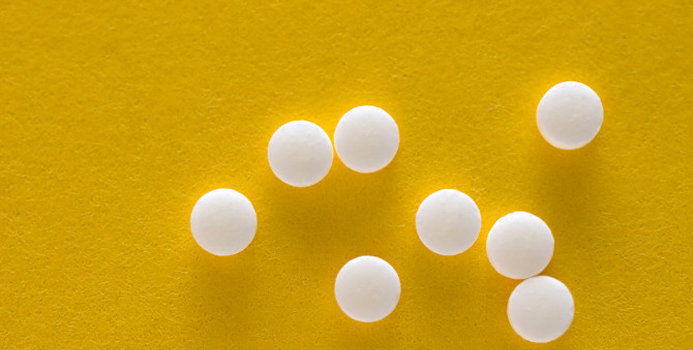Managing calories and choosing the best foods don't always go hand-in-hand. Artificial sweeteners such as sucralose and aspartame, commonly referred to as Splenda and Equal, respectively, offer a zero-calorie alternative to regular sugar. The Food and Drug Administration has deemed these sweeteners as safe for consumers, however, some research evidence in animal studies has pointed to potential dangers. While no human studies have found safety issues with these artificial sugars, weighing the benefits with possible risks are necessary when deciding to incorporate them into an everyday diet.
Aspartame (Equal or NutraSweet)
First approved by the FDA in 1980, aspartame has historically served as one of the most common artificial sweeteners. Aspartame is made by linking together the amino acids aspartic acid and phenylalanine. In the body, this compound is broken back down into the amino acids, in addition to methanol. While toxic in high amounts, the amount of methanol formed during this breakdown is not hazardous when consuming aspartame in moderate amounts. However, recent studies and growing complaints have linked this sugar substitute to many different adverse conditions, including headaches, nausea and even seizures in some people. Furthermore, other animal studies have indicated some severe complications from using Aspartame, such as blindness, heart palpitations, emotional disorders and anxiety.
Sucralose (Splenda)
Sucralose, the sweetening component in Splenda, has long been marketed as a derivative of sugar, implying that it is somehow safer and more versatile than other artificial sweeteners such as aspartame. To make one little yellow packet, regular sugar is chemically altered, replacing hydrogen-oxygen groups with chlorine. While there are only small amounts of chlorine in Splenda, studies have suggested that if consumed regularly for a long period of time, these levels could accumulate in the body, leading to adverse health outcomes. In addition, Splenda has also been linked to weight gain and aggressive emotions in some studies.
Overall, the big question of "which is worse?" does not offer a straightforward answer. When it comes to artificial sweeteners, they are not necessarily a "one size fits all." While most can use both aspartame and sucralose in moderation without seeing any negative side effects, others experience mild to moderate symptoms with just miniscule doses. Due to the fact that most studies indicating their negative side effects are done in animals, the application of risks to humans should not be over-emphasized until further research is done. Ultimately, knowing how your body reacts, and judging the risks and benefits for yourself is the best protocol to practice.

Sarah Dreifke is a freelance writer based in DeKalb, IL with a passion for nutrition education and the prevention of chronic disease. She holds a Bachelor of Science in both Dietetics and Life Sciences Communication from the University of Wisconsin-Madison. Currently, she is working towards a combined Master's Degree in Nutrition and Dietetics as well as a dietetic internship at Northern Illinois University.



